Cloud-Based Inventory Management Software: Trends, Features & Advantages
If you are in business in Saudi Arabia or the UAE today, you must realize that inventory is no longer an afterthought in the back office. It is at the very center of profitability, customer satisfaction, and long-term competitiveness. Whether it is hotel chains with a chain of outlets in Dubai, or food distributors supplying Riyadh’s rapidly expanding retail markets, one thing is certain: growth happens either at inventory or not at all.
The problem is that historical systems have not undergone evolution. Spreadsheets, on-prem ERPs, or simple warehouse applications leave companies grappling with:
- Dead stock is eating into margins.
- Replenishment delays caused by data isolation.
- Lack of clarity when operating across multiple warehouses or outlets.
- Compliance headaches, each audit requiring enormous amounts of manual prep.
This is where cloud inventory management software has transformed from a “nice-to-have” to a business-critical growth driver. By merging real-time information, automated ordering, and direct integration with sales, financial, and procurement systems, it provides the responsiveness businesses need to succeed in today’s markets of uncertainty.
Middle East decision-makers are posing different questions in 2025 than they did five years ago. It is no longer merely “How do I manage inventory?” but:
- Can my system forecast changes in demand prior to occurrence?
- Can I minimize waste and maximize working capital?
- Can my managers view the same inventory information in Dubai, Jeddah, and Doha simultaneously?
- Will the platform make audits easy and compliance a breeze?
Companies no longer accept reactive systems. They require systems to think along with them, and in some instances, think for them.
The Shift From Dashboards to Decisions That Think for You
Most ERP vendors will still sell you dashboards. They’ll tell you, “Here’s a real-time view of your inventory levels.” Okay, but come on, a dashboard only tells you what has already happened.
What the UAE and Saudi Arabian businesses truly require is something smarter: an infrastructure that ingests sophisticated data streams, sales patterns, supplier schedules, seasonal demand, compliance notifications, and then responds to them independently.
It is there that HostBooks Enterprise with Agentic AI diverges. Rather than merely highlighting a stockout risk on a dashboard, its AI module, HB Zeno, examines the situation, considers options, and even makes decisions such as increasing purchase orders or stock leveling, in real time.
Imagine what that would look like in practice:
- An Abu Dhabi hotel chain does not have to wait for reports to manually restock high-usage products. The inventory management system senses rising usage and initiates replenishment.
- A Jeddah food and beverage company does not stock up on perishables because projected data scales orders according to predicted demand.
- A Riyadh builder firm does not incur delays on projects due to the lack of materials; the system alerts procurement teams well ahead of shortages.
This is more than automation. It’s precision in decision-making, transforming inventory management from reactive reporting into proactive action.
The Real Game-Changer in 2025
And in 2025, that is the real game-changer: shifting from dashboards that need human interpretation to systems that provide operational leverage with minimal human intervention.
What Businesses Actually Ask Before Adopting Stock Management Software
When UAE and Saudi Arabian SME owners, supply chain managers, and CFOs themselves sit down to consider new systems, they don’t tend to begin with features. They pose many more practical questions:
“Will that cost me money or simply pay me another subscription?”
“Can my people in several places use it without constant IT support?”
“Do you integrate with the banks, e-commerce websites, and compliance systems that I’m already using?”
“If I grow from 2 warehouses to 20, will the same system be able to support me?”
These are not theoretical challenges, they have their roots in the real-time requirements of operating businesses in high-velocity, high-competition Gulf economies. For instance, a mid-sized distributor in Dubai does not need another piece of software that causes data silos. They need cloud-based inventory management software that integrates well into payments, logistics, and even tax reporting settings.
That is why adoption has accelerated in 2025: sellers like HostBooks have finally incorporated solutions to these issues into their systems themselves. The conversation is no longer about “features”, it’s about whether or not the software can deliver real operational resilience.
Beyond Features: The Outcomes That Matter
Let’s dissect the five outcomes UAE and Saudi companies are most worried about when considering inventory management software:
1. Working Capital Efficiency
Every dirham or riyal spent on idle inventory is an expense. Companies desire systems that reduce dead stock, optimize the reorder point, and release cash for growth.
2. Real-Time Visibility Across Locations
Retail chains, hospitality chains, and manufacturers can’t afford blind spots. Whether or not you’re in Riyadh or have a distribution center in Sharjah, stakeholders demand unified views of stock.
3. Scalable Infrastructure
You might have 200 SKUs currently, but in a year, you might have 20,000. Companies need systems that scale with their business and do not require costly migrations.
4. Decision Precision Through AI
Dashboards are helpful, but leaders are not interested in dashboards; they want recommendations and remediation. The system should not just notify you, it should fix it.
Industry Deep-Dives: How Inventory Unfolds Across Various Industries
The worth of inventory software is unveiled when you observe how it transforms industries:
Hotels and Hospitality
Take a chain like Delta Hotels or Royal Orchid in the UAE. Kitchens, bars, and housekeeping departments all rely on accurate stock control. Without real-time control, guests are impacted by shortages and margins are cut by overstocking.
A cloud-based model guarantees all sites are drawing from the same data, and predictive analytics anticipates peak-season needs. The outcome: guests never experience “out of stock” frustration, and managers carry leaner inventories.
Food & Beverages
Batch-level tracking and expiry management are essential in such a situation. Riyadh and Jeddah restaurants and distributors should not waste while being compliant. All ingredients are traced from supplier to outlet through cloud-based inventory management software, and profitability and safety are maintained.
Retail and Distribution
For online retailers, especially those with e-commerce and physical retail sales, synchronization is crucial. Shopify, Amazon, and Noon-integrated systems maintain up-to-date stock availability in real time, avoiding overselling as well as frustrating customers.
Manufacturing
Saudi Arabian producers use raw material availability to minimize downtime. With HostBooks, procurement, manufacturing, and quality control staff all work from the same inventory database to prevent delays and rework.
Construction and Engineering
Here, material delays translate to project delays. By automating procurement and tracking site-level inventory, contractors steer clear of over-buying and under-delivering, keeping projects on schedule and costs under control.
Features That Truly Move the Needle
Most vendors will bury you in long lists of features. But in all seriousness, not all features are created equal. What UAE and Saudi companies really need in inventory management software is
- Real-Time Monitoring: Zero latency between transaction and visibility.
- Predictive Insights: Forecasting demand, early risk detection, and more intelligent ordering.
- Automated Stock Balancing: Balanced stock levels without repeated manual checks.
- Audit Streamlining: Ongoing compliance monitoring with export-ready reports.
- Adaptive Learning: AI that improves recommendations the more it’s used.
- Integration Ecosystem: Bank, payment gateway, e-commerce, logistics, and compliance system compatibility.
These are not “nice-to-haves.” They’re the difference between a system that introduces noise and one that introduces value on day one.
The Compliance and Audit Edge
Quite possibly the most under-discussed of the region’s problems is compliance. Auditors require transparency, regulators require precision, and internal teams require ease. Classical manual systems generally fall on all three counts.
Cloud-based inventory management software achieves this by:
- Enforcing compliance rules continuously, not just during audit season.
- Automated audit trail creation, where every movement of stock is recorded.
It’s not just about penalty avoidance, it’s about taking back time and resources that would otherwise be spent on manual record-keeping.
The Trend Lines: The Future of Inventory Management
Looking ahead towards 2025 and beyond, three significant changes are defining the future of Middle East inventory management software
- Self-Governing Systems: AI-based solutions such as HostBooks Zeno don’t watch, they act. Companies will increasingly want their ERP and inventory modules to process transactions on their own.
- Industry-Specific Intelligence: Generic solutions won’t cut it. Hotels, producers, retailers, and F&B players all require industry-specific knowledge. Sellers who develop these customized capabilities will own the market.
- Hyper-Connected Ecosystems: Integration will extend to logistics and payments. The future is inventory platforms linked to IoT devices, supply chain sensors, and even sustainability tracking to address ESG requirements.
Why HostBooks Enterprise Leads This Transition
Whereas most vendors are “cloud-first,” HostBooks stands alone with its Agentic AI foundations. Rather than merely providing managers with dashboards, it provides them with decisions, minimizing intervention, optimizing margins, and speeding scale.
- Hotels receive guest-focused inventory information.
- Merchants integrate smoothly with Shopify, Amazon, Zomato, and others.
- Manufacturers combine production, buying, and managing quality.
- Construction contractors prevent expensive delays with computerized material planning.
With 5,000+ business clients in 12 nations, HostBooks has already demonstrated it can scale, while still being able to accommodate local requirements in the UAE and Saudi Arabia.
What Companies Actually Ask Before Adopting Inventory Management Software
When UAE and Saudi Arabian SME owners, supply chain managers, or CFOs sit down to assess new systems, they don’t usually begin with features. Instead, they first inquire about far more practical questions:
- “Will this cost me less or simply provide me with another subscription?”
- “Can it be used by my people in multiple locations without constant IT support?”
- “Do you work with the banks, e-commerce platforms, and compliance systems I already have?”
- “If I grow from 2 warehouses to 20, will the same system still support me?”
These aren’t hypothetical issues, they’re based on the real demands of operating businesses in high-speed, highly competitive Gulf economies. Take a mid-sized distributor in Dubai, for example: they don’t want another tool that builds data silos. They need cloud-based inventory management software that integrates seamlessly into payments, logistics, and even e-commerce platforms.
The reason adoption in 2025 has picked up speed is that companies such as HostBooks have finally incorporated solutions to these issues into their platforms. The discussion is no longer “features”, it’s a matter of whether or not the software actually provides real operational resilience.

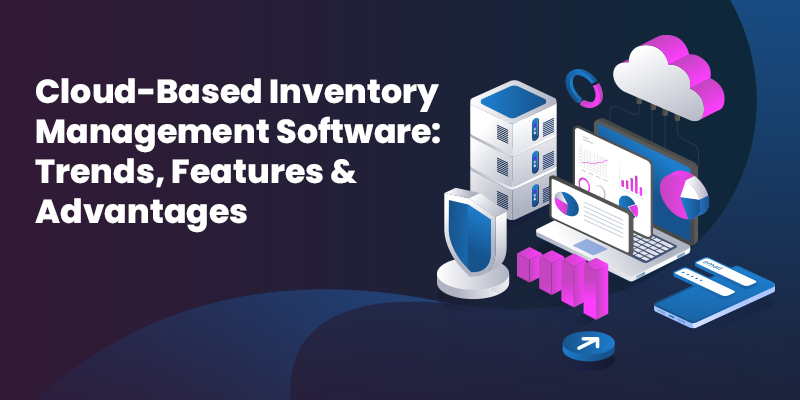

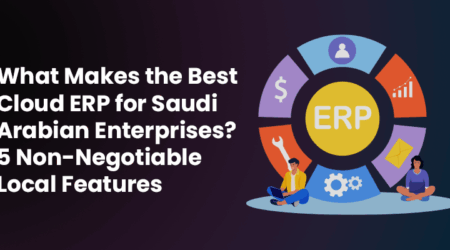
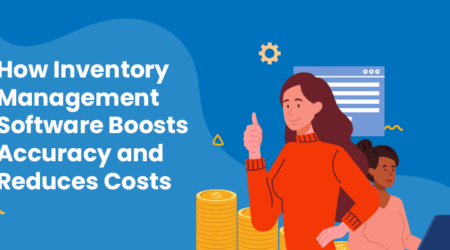



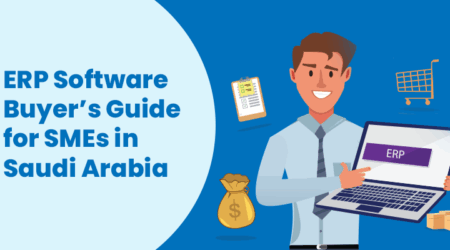
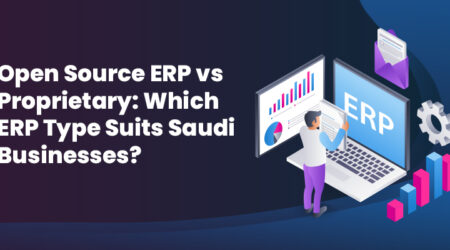


Leave a Reply